#ChemEngCatchUp Episode 8 – Gbemi Oluleye
Meet the Department 29th July 2016
Hello all – and welcome to Episode 8 of #ChemEngCatchUp. After meeting with Teacher of the Year Tom Rodgers last time around, it’s now time to meet with one of our most impressive recent graduates.
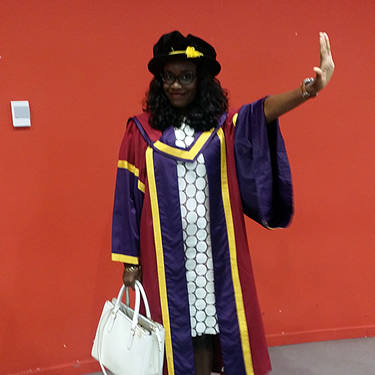
Gbemi Oluleye came highly recommended as an interviewee, and I was no disappointed. So without further ado, let’s all get introduced:
Hi Gbemi. And thanks for coming to visit us here in your old haunt, we’re glad to have you back for a while. Could you start by telling us a bit about what you’re up to now?
I’m currently a Research Associate with the Department of Chemical Engineering at Imperial College, London. I just started a month ago. My research is on energy systems, trying to decarbonise heat supply for domestic users using different technologies.
Fantastic, thank you. Could you please describe your research, for the layman, in ten sentences or less?
My research is about decarbonising energy supply. For example, in your houses, if you’re cold, you turn on the heater to increase the air temperature. And if you’re hot, you turn on the fan to reduce the temperature. It’s the same thing that happens in the industry; there are chemical processes that need heating at different temperatures and there are chemical processes that need to be cooled down. So my research is to model the processes responsible for this heating and cooling and to also integrate them into a system and ensure that that system is efficient.
So every time you’re hot at home and you turn on the fan, it has to come on. And it has to be in a sustainable way, it has to be in a secure way, and it has to be in an efficient way. So that’s what my research is on.
So you definitely touched on this, but can you tell us a bit more about how your work can benefit the public?
Energy is the mainstay of any economy. It’s the reason why you wake up in the morning and go out, wherever you’re going. And it’s very important for our energy systems, the system that’s responsible for supplying the energy needs whether heat, power, or fuel for transport, to be efficient, to be sustainable, and to be secure.
As a chemical engineer my goal is to try and make sure that energy systems satisfy those three criteria. By designing the technologies and making sure the technologies are integrated in the correct way, using the best mix of energy sources available, to satisfy that criteria. So at the end of the day we have a system that we can use for a very long time because we’ve carefully selected the technologies to include in that system. And we’ve carefully selected the right energy sources, whether that’s renewable or fossil fuels.
And how did you first get interested in your research area?
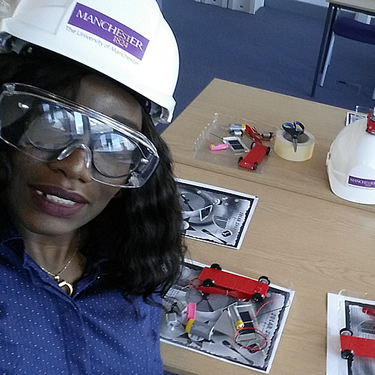
Doing my Master’s degree at The University of Manchester I took courses on energy systems and utility systems and I discovered that without energy no chemical reaction can happen. Without energy the world would be at a standstill. And I was really, really interested in how we consume energy and how we can ensure that we have enough supplies for future years.
I was also interested in the technologies that combust fuel to generate heat and power and the systems where these technologies are integrated to generate heat, power, and cooling.
That was what sparked my interest in energy systems. And to me that was like, ‘oh my God, that’s just the beginning of my life’. I was like ‘I really want to make sure that our energy supply is secure, is sustainable, and is efficient’.
And all of my decisions after that lecture were tied down to energy systems. My dissertation was on integrating renewable energy in the processing industry, my research was on improving the energy efficiency of utility systems in industry through waste heat utilisation, my job now is still on heat decarbonisation. And I hope that someday I’ll be able to contribute towards energy systems that are sustainable, secure, and efficient.
Sounds like a very important and interesting research area, Gbemi! Going back a bit further, then, could you tell us a bit about what first inspired your interest in engineering?
I remember when I was a little child I had the opportunity to visit an oil rig. I had my hard hat and my little safety boots and I was walking around, actually running around, until I saw a flow sheet diagram which showed all of the
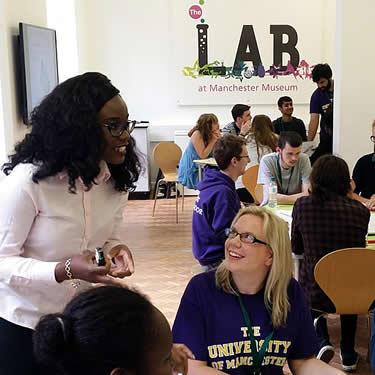
production processes on that particular site and how the materials are transformed to end product.
I didn’t know about utilities then, it was just a process flow diagram. It had so many colours on it and I could put my fingers on it and I could trace from the beginning of one feed to the end product. I could see it. And I told the person that was taking us around that I wanted to be able to produce that flow sheet. And they said, ‘well then you’ve got to be a Chemical Engineer’. And I said ‘okay, I’m going to be a Chemical Engineer’. I was nine at this time!
And I remember that from that point I wanted to produce that flow sheet. So sitting through secondary school and all the boring lectures, I enjoyed them because I wanted to be able to produce that flow sheet.
After high school I went to college and it was Chemical Engineering. My first choice was Chemical Engineering and my second choice was Chemical Engineering. And then I got into university to study Chemical Engineering and in my first year I still couldn’t produce the flow sheet because I didn’t have enough information. I produced a small one but it wasn’t as detailed.
In my final year I had all the information to produce a flow sheet but I still couldn’t, so I got a job in a process engineering firm and I produced a flow sheet. And imagine, after producing that flow sheet, I was told I needed heat to drive that reaction and I needed power for the supply. So I was like ‘that’s not the end?’
So I came all the way here for a Master’s in Advanced Process Design.
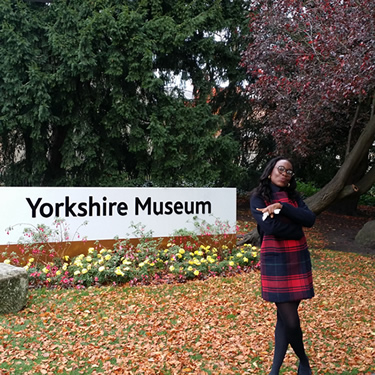
Brilliant! What a journey! So, moving away from work for a minute, could you tell us a bit about what you get up to in your spare time?
I don’t have a lot of spare time, but I’m very, very involved in widening participation and public engagement. That’s taking my research, or taking chemical engineering, to high schools and colleges and creating activities to inspire young adults into science, technology, engineering, and mathematics. For me that’s a hobby because I just enjoy talking about it. The trickiest part is when they ask really hard questions, but there’s usually a way around it. So that’s one thing I do in my spare time.
I also love history, so I visit museums. You’ll find me in front of all the museums in the UK at the weekend. And I love to read. And finally, I love to cook. It’s very relaxing for me.
Thank you! We’ll go back to your time in Manchester for the final two questions, I think. Could you tell us how being here in Manchester helped your work and research?
My decision to come to Manchester wasn’t really… I didn’t think so deeply about it. I just typed into Google ‘chemical process design’ and The University of Manchester came up. Because I grew up in Nigeria I’d never heard about Manchester, but I was like ‘okay, that’s where I want to be’.
That was two years before I actually applied so I was just planning for it. And then I came to Manchester and discovered that this is actually the birthplace of chemical engineering. Oh my God, that was a lucky Google search!
I discovered that the University has a lot of opportunities to learn skills and meet people; and the people are very friendly. The social responsibility of the University, the dedication to students, and research as a research powerhouse – that was it for me!
So coming here, staying here – it was because of these things!
And to finish things off, can you tell us one of your best memories from your time here?
I have so many memories! My favourite is probably the barbecues we used to have in my research group – just all of us meeting together, eating, and playing games. That’s a good memory!
Thanks, Gbemi! It’s great to hear that you had such an enjoyable time here. It’s also fantastic to hear that one of our graduates has gone on to research such a crucial and exciting topic. Best of luck with the research and please do keep us updated!
There’s a pretty special edition of #ChemEngCatchUp next month – we’ll be chatting to the new Head of School Chris Hardacre! Don’t miss that one.
AlumniChemical EngineeringEnergyPostgraduateResearch

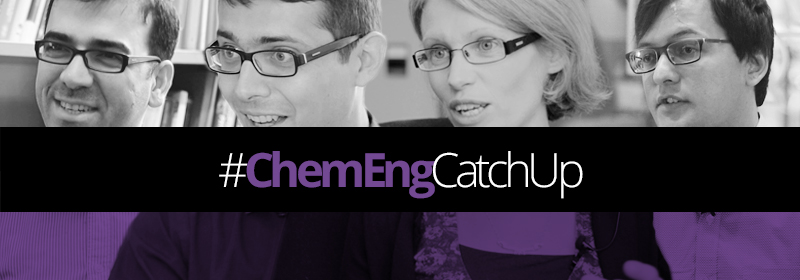
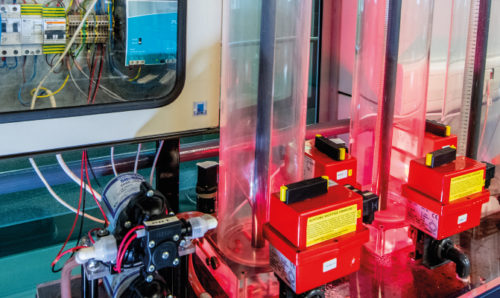
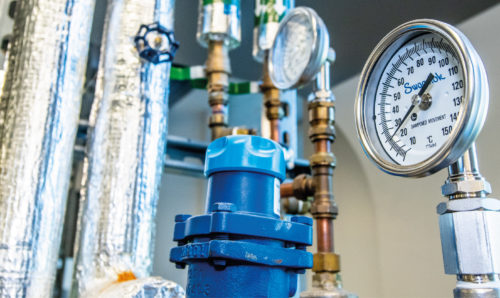
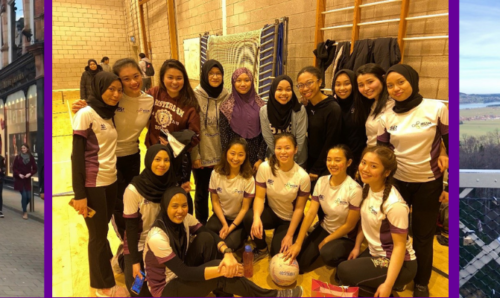
Mary Onome says
I am confident that your story will encourage more young girls to go into engineering and be part creating a better future for us all. Wish you all the best in your current role and the future. May you excel as you did in Manchester. Well done Gbemi.
Biodun Oluleye says
This is great talk , it shows you had a vision at nine years old and you pursued it. You would surely excel in your field of research and you would be a blessing to humanity in Jesus mighty name. Amen
Tobi Oluleye says
Well done girl! I remember the rig visit when we were children! Although the only thing that I found interesting was the delicious lunch! Good thing it planted a seed in your heart and we can see the fruits now! You go girl!!!! I’m so proud of you!
mfbx8fs5 says
Thank you for all your comments – we agree that Gbemi’s story should encourage others to get involved. What an inspiration!
Aled says
Great story. I attended Jackson’s Mill from ’59 to ’64 when ChemEng was not a widely known profession and have not a single regret about that! Theree’s so much now going on where Chemical Engineers are looking at single facets of sustainability and I hope my own early speciality of Carbon Science will soon be redundant! The twist to my life was switching to an interest it Alternative Energy and Energy Storage later on. The integratin of all that, which is Gmebi is looking at is refreshing and I’d hope she gets out into the commercial world with her ideas soon! It’ll be hard as that world is full of vested interests in ‘the old way’ of doing things…..
Patrick Godwin says
Gbemi, You are just amazing!